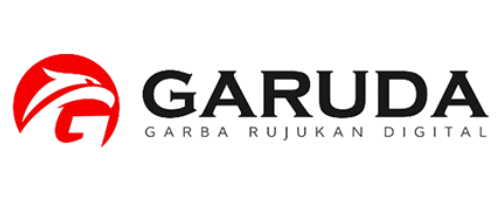| USER ADMIN |
| login | logout | register |
Publication Ethics
Publication Ethics
INTEK: Jurnal Penelitian is a peer-reviewed electronic journal with a global audience. This ethical statement defines the responsibilities and expected ethical conduct of all parties involved in the publication process, including authors, the chief editor, the Editorial Board, peer reviewers, and the publisher, Politeknik Negeri Ujung Pandang.
Ethical Guidelines for Journal Publication
Publishing in INTEK: Jurnal Penelitian, a peer-reviewed journal, is essential for contributing to a respected and coherent knowledge network. This process reflects the quality of the authors' work and their supporting institutions. Peer-reviewed articles uphold and exemplify the scientific method, making adherence to ethical standards by all participants—authors, journal editors, peer reviewers, publishers, and the academic community—critical.
Publication Decisions
The editor of INTEK: Jurnal Penelitian is responsible for deciding which of the submitted articles will be published. These decisions should be guided by the significance and validity of the work to both researchers and readers. Editors may rely on the policies of the journal's editorial board and are expected to comply with legal standards, including those related to libel, copyright infringement, and plagiarism. Editors may also consult with other editors or reviewers when making their decisions.
Fair Play
Editors must evaluate manuscripts purely on their intellectual merit, without consideration of the authors' race, gender, sexual orientation, religious beliefs, ethnic background, citizenship, or political views.
Confidentiality
Editors and editorial staff are required to maintain the confidentiality of all submitted manuscripts, sharing information only with the corresponding author, reviewers, potential reviewers, other editorial advisors, and the publisher as necessary.
Disclosure and Conflicts of Interest
Editors must not use unpublished materials from submitted manuscripts in their own research without obtaining the author's explicit written permission.
Duties of Reviewers
Contribution to Editorial Decisions: Peer reviews assist editors in making editorial decisions and may also help authors improve their papers through constructive feedback.
Promptness: Reviewers who feel unable to review a manuscript promptly or are unqualified to do so should notify the editor and excuse themselves from the review process.
Confidentiality: Manuscripts under review must be treated as confidential and not shared or discussed with others except as authorized by the editor.
Standards of Objectivity: Reviews should be conducted objectively, with reviewers providing clear, well-supported arguments in their evaluations, avoiding personal criticism of the author.
Acknowledgment of Sources: Reviewers should identify any relevant published work that has not been cited by the authors and notify the editor of any significant overlap between the manuscript and other published works they are aware of.
Disclosure and Conflict of Interest: Confidential information or ideas obtained through peer review must not be used for personal advantage. Reviewers should not review manuscripts where there is a conflict of interest arising from competitive, collaborative, or other relationships with any of the authors, companies, or institutions involved.
Duties of Authors
Reporting Standards: Authors should present an accurate and objective account of the work performed, including sufficient detail and references to allow others to replicate the study. Fraudulent or knowingly inaccurate statements are unethical and unacceptable.
Data Access and Retention: Authors may be asked to provide raw data for editorial review and should be prepared to make such data publicly accessible when possible, retaining it for a reasonable time after publication.
Originality and Plagiarism: Authors must ensure their work is entirely original. If they have used the work or words of others, proper citation or quotation is required.
Multiple, Redundant, or Concurrent Publication: Authors should not publish the same research in more than one journal or primary publication. Concurrent submission of the same manuscript to multiple journals is considered unethical and is unacceptable.
Acknowledgment of Sources: Proper acknowledgment of the work of others is required. Authors should cite publications that have influenced their work.
Authorship of the Paper: Authorship should be limited to those who have made a significant contribution to the conception, design, execution, or interpretation of the study. Others who contributed should be acknowledged. The corresponding author must ensure that all appropriate co-authors are included, that they have approved the final version, and that they have agreed to the submission.
Hazards and Human or Animal Subjects: If the research involves chemicals, procedures, or equipment with inherent hazards, these must be clearly identified in the manuscript.
Disclosure and Conflicts of Interest: Authors must disclose any financial or other substantive conflicts of interest that could influence the results or interpretation of their manuscript. All sources of financial support must be disclosed.
Fundamental Errors in Published Works: If an author discovers a significant error or inaccuracy in their published work, they must promptly notify the journal editor or publisher and cooperate with them to retract or correct the paper.


























